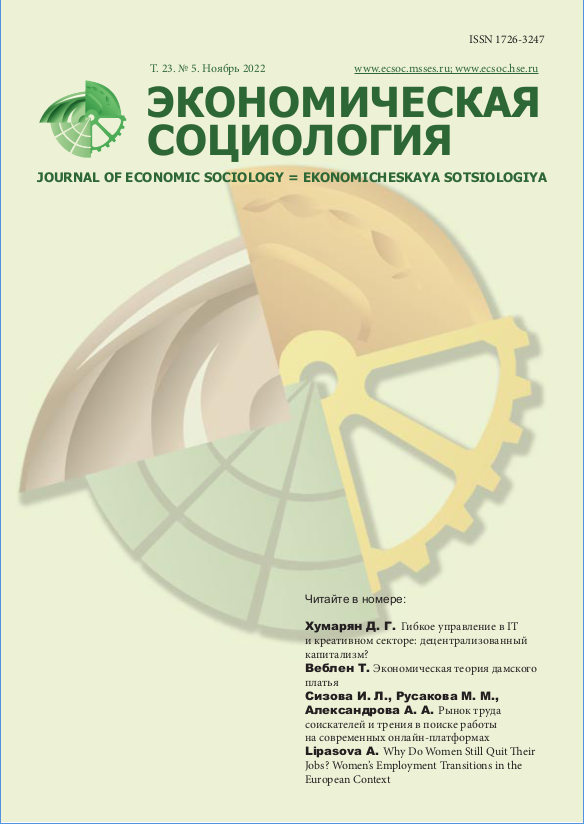Young Russians’ Pathways to Marriage: The Role of Networks
Abstract
How do young Russians get married? With the second demographic transition and the "great transformation", individualization and marketization of romantic relationships, the pathway to marriage seems to be reminiscent of a job search. The latter, according to Granovetter, is characterized by "the strength of weak ties". But if the labor market implies mobility and career building, marriage logic denies them—scarcely do people get married in order to get divorced and build "marriage careers". This controversy makes Granovetter's theory ambivalent in the marriage search field. So, this paper aims at uncovering the role weak and strong ties play in young Russians' marriage trajectories. 16 biographic interviews were conducted and concentric sector method and thematic coding were used. Although weak ties, especially those on Internet, showed their importance at the first meeting stage, yet further pathway to marriage required kinship network overlap and moving from weak to strong ties. Kinship ties were also a source of social capital, giving information about the future spouse. Network overlap, however, could be complicated by negative relationships one had in their parental family. This implies “path dependency”: if strong ties had not been built in one’s parental family, it would be difficult to build them in a new affinity network. As for the marriage celebration stage, once again kinship networks and bonding social capital played an important role with the latter having been converted into financial resources. So, having begun the analysis with Granovetter's theory, we then moved to network analysis in an anthropological manner, paying specific attention to the strong tie formation process and kinship networks.Keywords: networks; embeddedness; pathways to marriage; network approach; weak ties; strong ties; social capital; marriage market.













